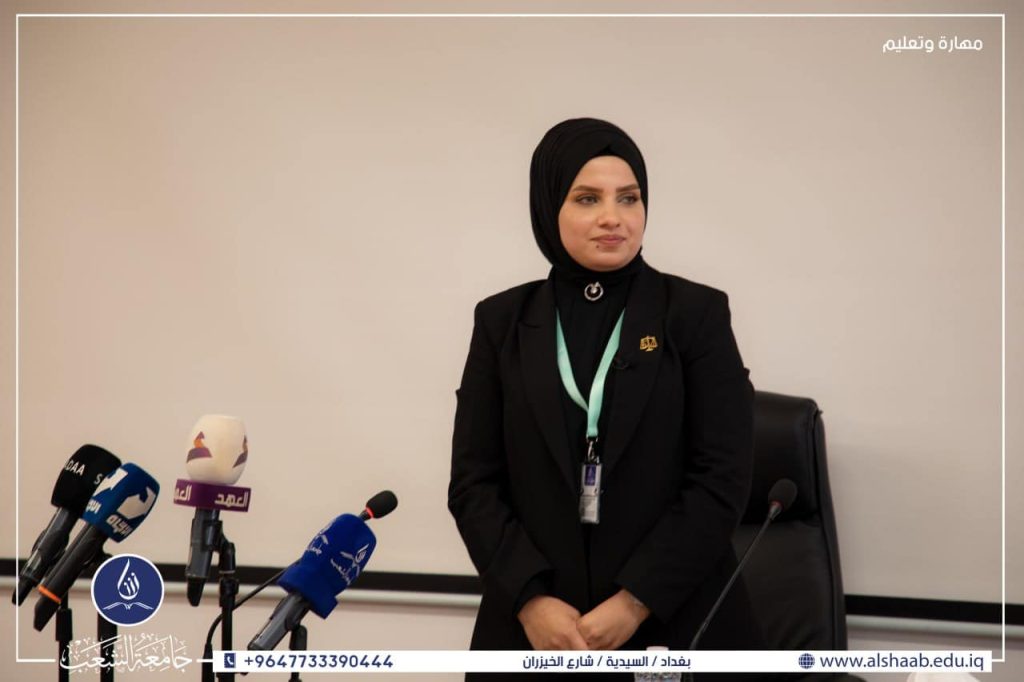AlShaab University hosted a symposium entitled Confronting Domestic Violence Crimes Through Legislation, which was prepared and presented by Roaa Talib Obeid, faculty member in the College of Law. The symposium was attended by the University president, the Ministry of Interior Director of Community Police and his entourage, the legal advisor to the Capitol Municipality, and legal affairs researcher, Dr. Eser Ali Hassoun. A large group of students as well as the media were also in attendance.
The symposium was held to find solutions to this issue which threatens the Iraqi social fabric and family cohesion. The recurrence of domestic violence cases has become a major problem faced by Iraqi families, who face many obstacles in receiving assistance from concerned authorities such as the community police.
AlShaab University, out of responsibility towards Iraqi society, offers such academic seminars and workshops that are at the core of many social, economic and cultural problems. It is important to identify problems and their implications academically and cognitively, and provide solutions and logical ways to address them.
The researcher also came out with several important recommendations in the framework of combating the phenomenon of domestic violence, including the amendment of Paragraph 413 in Law 111 of 1969, which stipulates a one-year prison sentence with a monetary fine. She also recommended harsher sentences for parents who abuse their children physically and mentally, which falls under verbal abuse. She also noted that under the current laws which define criminal proof, physical testimony is required. This collides with the cultural principle that “what happens in the family stays in the family”. She suggests that other ways must be identified and utilized to prove domestic violence crimes.The recommendation also came to enact the Domestic Violence Law, similar to the one adopted in the Kurdistan region in 2011 proposed nine years ago, which sat on the parliament table as a draft without being put to vote.
The symposium concluded with another important recommendation: concerted efforts and cooperation between the relevant state ministries must increase academic awareness through regular seminars regarding family issues.

